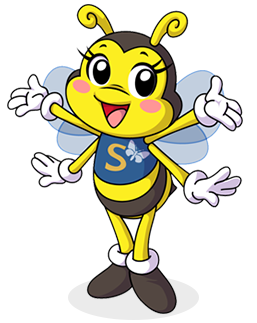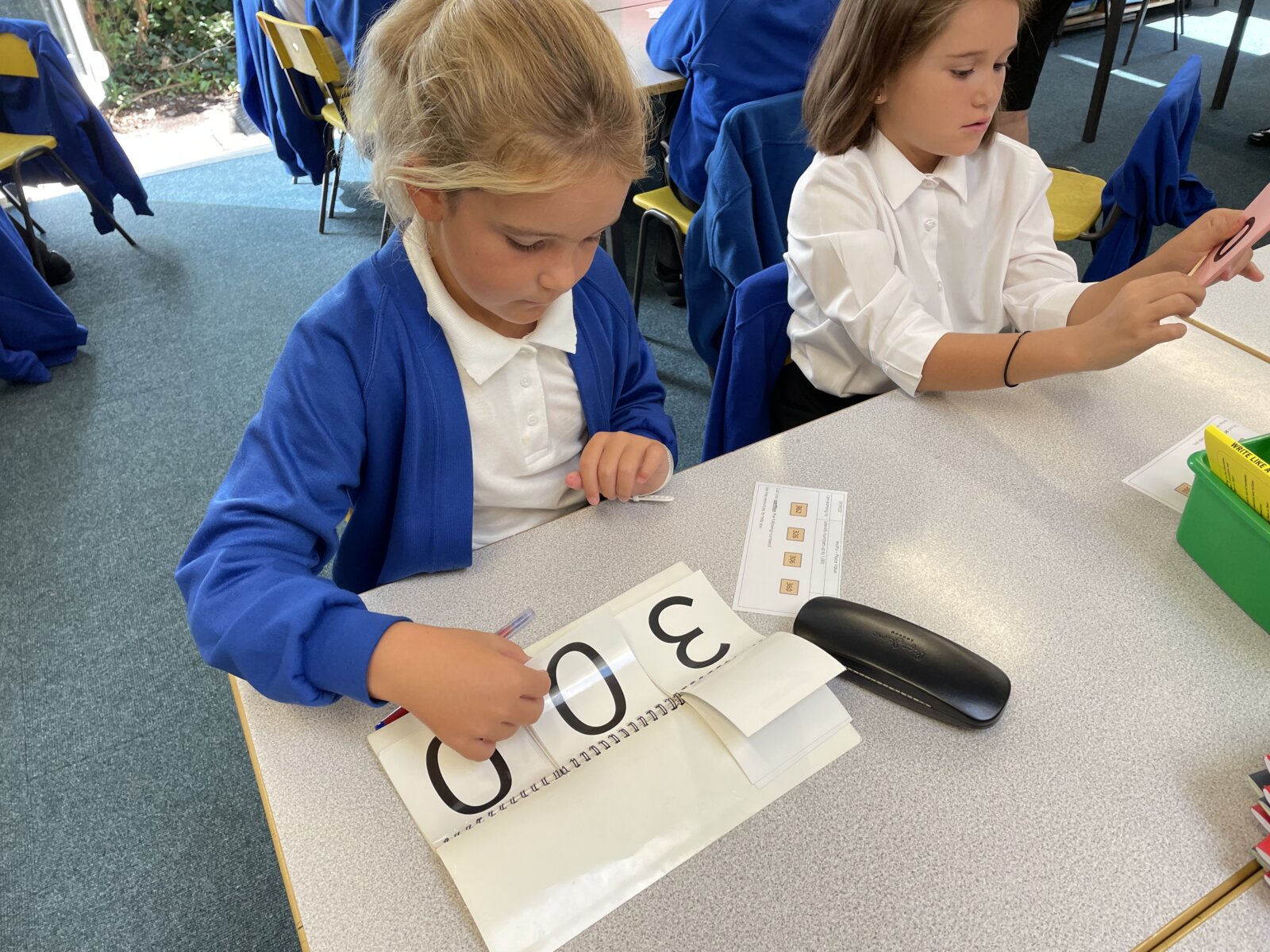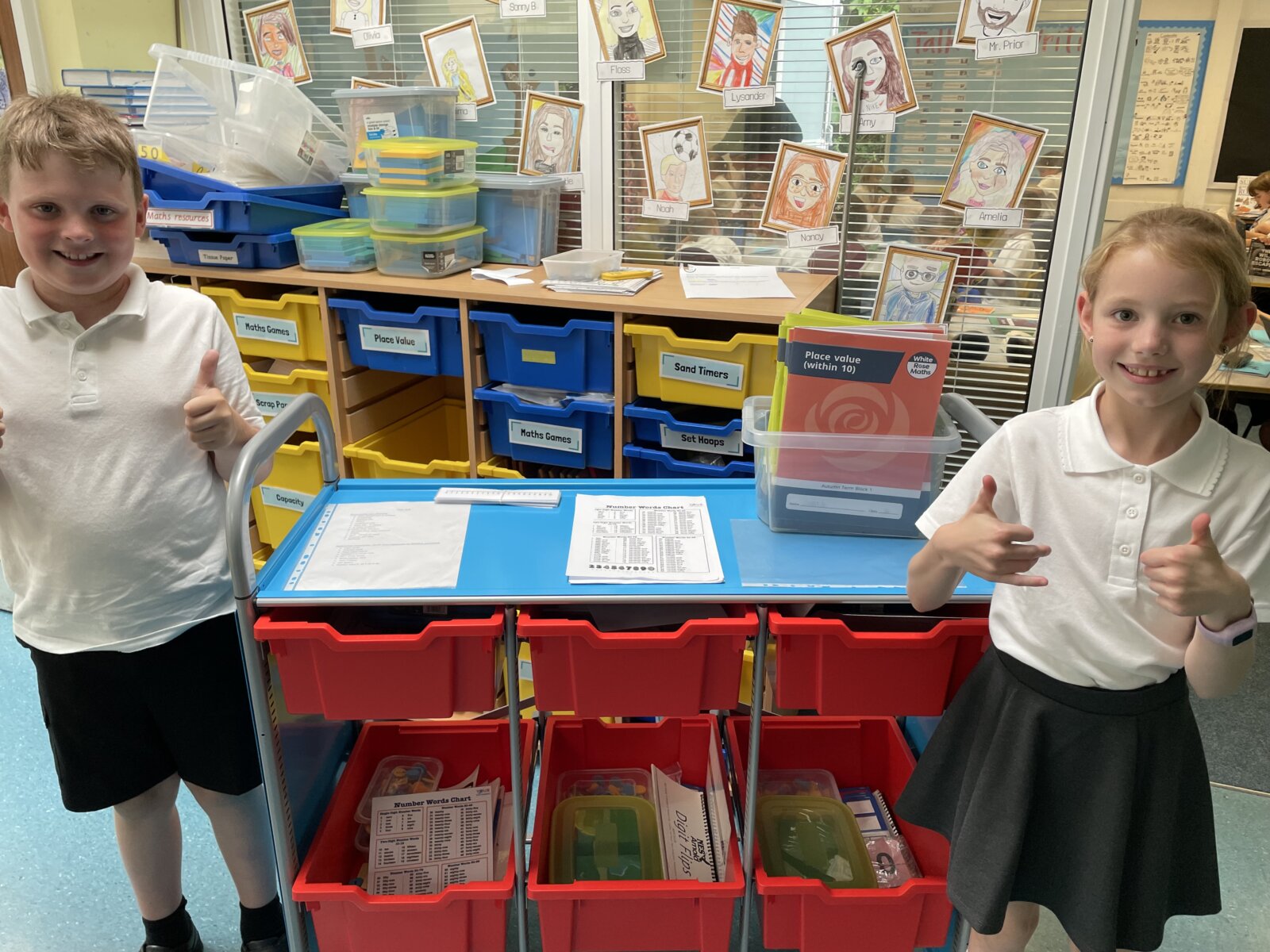“Without mathematics, there’s nothing you can do. Everything around you is mathematics. Everything around you is numbers.” Shakuntala Devi
Why do we teach maths?
At Southill Primary School, we believe in the paramount importance of teaching mathematics, driven by the fact that all children should emerge as competent and confident mathematicians. We instill the understanding that mathematical fluency is essential for navigating and succeeding in various real-world scenarios. Our curriculum places a particular emphasis on fostering arithmetic skills and developing oracy, understanding them as the foundations to mathematical competence. We integrate journaling into our teaching approach, enabling children to explore problems independently and hone their reasoning skills. Both arithmetic and problem solving are integral components of our daily lessons, reflecting our belief that these elements are crucial aspects of the children’s daily lives. We celebrate their accomplishments in assemblies by highlighting their efforts in lessons or presenting TT Rockstar certificates for the development of times table fluency. Our overarching aim is to ensure that every child leaving Southill is equipped not only as a confident mathematician but also as a proficient problem solver, ready to face the challenges that lie ahead.
The National Curriculum
The overarching aim of mathematics is to provide the foundations for understanding the world, the ability to reason mathematically, an appreciation of the beauty and power of mathematics, and a sense of enjoyment and curiosity about the subject.
The national curriculum for mathematics aims to ensure that all pupils:
become fluent in the fundamentals of mathematics, including through varied and frequent practice with increasingly complex problems over time, so that pupils develop conceptual understanding and the ability to recall and apply knowledge rapidly and accurately reason mathematically by following a line of enquiry, conjecturing relationships and generalisations, and developing an argument, justification or proof using mathematical language can solve problems by applying their mathematics to a variety of routine and non-routine problems with increasing sophistication, including breaking down problems into a series of simpler steps and persevering in seeking solutions.
What do we want children to know and do?
At Southill Primary School, our dedication lies in delivering a comprehensive maths curriculum designed around the principles of verbal communication and hands-on mathematical exploration with manipulatives. Throughout each student’s mathematical journey, our goal is to create avenues for practical, real-world maths experiences. Here, children are not only motivated but also supported in their quest for solutions, fostering the development of mathematical language to allow them to justify their answers. Our objective is to instill a sense of enjoyment and curiosity about mathematics. This will be achieved through an engaging and challenging maths curriculum that encourages students to draw connections between their learning and real-life encounters. We aspire to cultivate confident and proficient individuals who can recall number facts with ease and are able to apply this knowledge in practical situations.
How do we teach maths?
At Southill Primary School, our approach to teaching mathematics is structured to provide a solid foundation while fostering independence and a love for the subject. Across all year groups, we utilize the White Rose Maths scheme as a scaffold for our timetable, ensuring a cohesive and comprehensive learning experience.
In Reception, our youngest learners focus on early learning goals in mathematics, engaging in activities that include songs, practical exercises, and a specific emphasis on number recognition and pattern observation. White Rose resources are integrated as needed to enhance the learning process.
In Years 1 and 2, students delve into arithmetic skills using the flashback 4 questions from White Rose. These questions serve as valuable tools for recapping prior learning, reinforcing key concepts, and promoting regular practice. Problem-solving skills are nurtured through journaling, where drawing and manipulatives play a crucial role. Staff provide necessary scaffolding to support students in their problem-solving journey. Children also have their own independent workbook which allows them to practice these new methods and skills.
As children progress into Key Stage Two, they take on a more independent role in their learning. Daily arithmetic sessions and the use of TT Rockstars contribute to the development of times table knowledge. Problem-solving skills continue to evolve through journal tasks, emphasizing reasoning abilities. Workbooks are also used to give children opportunities to demonstrate their understanding of new concepts. Challenge slips are distributed across Key Stages One and Two to acknowledge students demonstrating a secure understanding of the material.
Beyond mathematical proficiency, we prioritize the development of mathematical oracy. Throughout the curriculum, children are provided with ample opportunities to articulate their thought processes and understanding of key concepts. Collaborative discussions occur in various formats, including partner and group discussions, as well as opportunities to present in front of the class.
At Southill Primary School, our mathematics curriculum is not just about mastering skills but also about nurturing independent thinkers, problem solvers, and effective communicators. The integration of the White Rose Maths scheme, coupled with our focus on regular practice, problem-solving, and oracy, ensures a well-rounded and empowering mathematical education for all our students.





